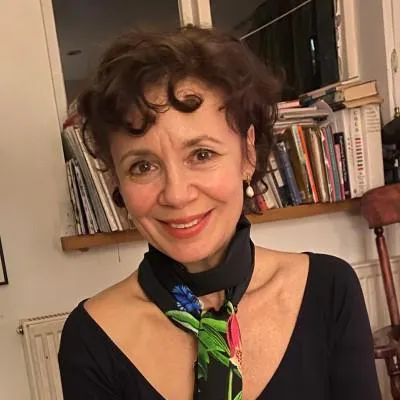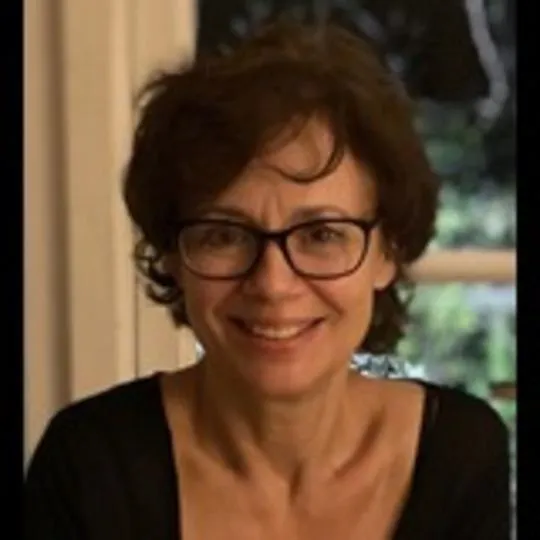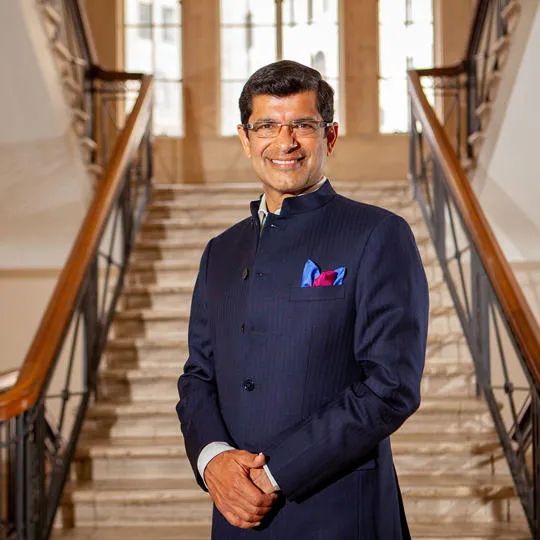14 March 2022
Young people, mental health and wellbeing: Exploring creative approaches and collaborations
The event that took place on 22 February 2022 kick-starts at King's a new programme in the area of young people, mental health and wellbeing

Written by Nikki Crane, Arts, Health & Wellbeing Lead at King’s College London
The Arts, Health & Wellbeing hub at King’s was set up to create a network of colleagues interested in this fast-moving and inspiring field to bring together existing initiatives, promote knowledge exchange and partnerships across education and research and draw on the huge benefits of arts-based activities in supporting the wellbeing of staff and students. The role of the hub is also to go beyond the university’s walls to forge links with major arts and health developments locally nationally and internationally.

With a background in dance, I moved on to lead national strategy in arts & health and arts & criminal justice at Arts Council England. Before coming to King’s, I was Head of Arts Strategy at Guy’s & St Thomas’ Charity, developing arts programmes designed to be embedded in the local health system. Right from the time of being a dance practitioner I have seen how the arts can transform people’s mental health and wellbeing and help connect communities.
The mental health and wellbeing of students is a priority at King’s and the ‘Young people, mental health and wellbeing: Exploring creative approaches and collaborations’ event in late February was initiated to kick-start a new programme in this important area.
This will be built on an already strong evidence base that harnessing the power of arts and culture can have a major impact on young people’s mental health and wellbeing and King's has already been a great pioneer in this area including:
-
King's SHAPER programme: a £2million research programme funded by the Wellcome Trust that is designed to assess the effectiveness and implementation of three arts-in-health interventions and embed them in clinical pathways across King's Health Partners (KHP). One of these programmes is Melodies for Mums based in Lambeth and Southwark, providing 10-week singing and music sessions for mothers with postnatal depression (PND) and their babies in community Children’s Centres.
-
The work of the ESRC Centre for Society and Mental Health has a specific strand around young people and mental health that harnesses creative approaches.
- King's projects form part of a £24m UKRI investment into adolescent mental health, some of which will use creative approaches and bring together a range of experts including scientists, artists, teachers and doctors who will work directly with the young people affected.
Our event brought King’s staff across faculties together with external partners and colleagues to look at what works and share effective practice, exchange information on ongoing initiatives and to discuss potential for collaboration in the future. We were delighted that King’s President & Principal Professor Shitij Kapur was able to introduce the event placing it in the context of the university’s commitment to promote wellbeing among students and staff. This paved the way for the Head of King's Student Mental Health & Wellbeing Strategy to speak about next steps for the strategy, pointing out that King’s is among the first group of universities to join Student Minds’ University Mental Health Charter Programme that provides a framework of evidence-based principles to help UK universities strengthen mental health support for students and staff.
Very importantly, we heard the student perspective and learned about the successful Positive Peers programme within KCLSU which is providing a much-needed channel for building resilience through greater connectivity between students and for sharing experiences.
A major theme for the development of the mental health and wellbeing programme at King’s that was highlighted throughout the event, is the importance of co-production and of putting lived experience at the centre of designing and delivering programmes.
Daniel Regan, artist and arts and health consultant, reinforced this in his personal address entitled ‘Why the arts matter in mental health?’, recounting vividly how creativity, and in particular photography, was pivotal in supporting him through mental health and wellbeing challenges and in particular tackling stigma.
The theme of stigma was picked up again in a vibrant showcase of arts programmes, hosted by Daniel, including Hampshire Cultural Trust ‘ICE Heritage’, 'Kazzum Arts’ ‘Brighter Futures’ and 42nd Street’s ‘The Horsfall’, featuring a number of young people who participate in these programmes. Their testimony covered recurrent themes touched on by many of the speakers, including how the arts support self-expression, a sense of achievement and pride, new skills, feelings of acceptance, social connectivity and motivation and help to combat social isolation and loneliness.
It was illuminating to hear from our invited partners and colleagues working locally and across the country about the many far-reaching programmes they are putting in place to support young people’s mental health and wellbeing.
One such partner was Jessica Santer, Head of Creative Learning at Southbank Centre, where an event in October 2021, in partnership with King’s, began a conversation about how arts and culture can support and improve the mental health of young people. In the 22 February event, which built on these invaluable initial conversations and connections, Jessica spoke about the Southbank Centre’s commitment to young people, especially those 16-25 years with a focus on loneliness and social isolation.
Clare Lovett, Principal Project Development Officer, Culture and Creative Industries at Greater London Authority highlighted their ‘Thriving through Culture’ programme, including the 2.8 Million Minds initiative, focusing on how culture can help support young people’s mental health and wellbeing.
On the all-important funding side of things, John McMahon – Health and Justice Lead, Arts Council England, gave a brief summary of priorities and funding available under the Arts Council’s ten-year strategy Let’s Create, highlighting the Arts Council’s impressive commitment to arts, health and wellbeing.
We were delighted that so many people from such a diversity of backgrounds attended the event, from clinicians to academic staff, from artists to young people participating in projects across the country and leaders in our local communities with huge passion and commitment for this work.
Clearly, there is a huge opportunity to collaborate and we will be systematically following up with colleagues to explore the many ideas for joint working that emerged in the course of the event and in many of the lively conversations that led up to it. The phased reopening of Science Gallery London, King’s interdisciplinary hub for discovery in art, health and science, with a focus on 18-25 year olds, from June will be a major catalyst for taking these conversations further, providing an inspiring space to spark new thinking and develop new programmes.
We look forward to being in touch with those interested in working with us on the development of the arts, young people and mental health programme and below are a few ways that you can connect with us or stay updated:
Connect and stay updated
In this story
Related departments
- King’s Culture
- SHAPER - Scaling-up Health Arts Programmes: Implementation and Effectiveness Research
- Institute of Psychiatry, Psychology & Neuroscience
- Department of Psychological Medicine
- School of Academic Psychiatry
- Department of Child & Adolescent Psychiatry
- Eating Disorders Research Group
- ESRC Centre for Society and Mental Health
- Department of Health Service & Population Research


